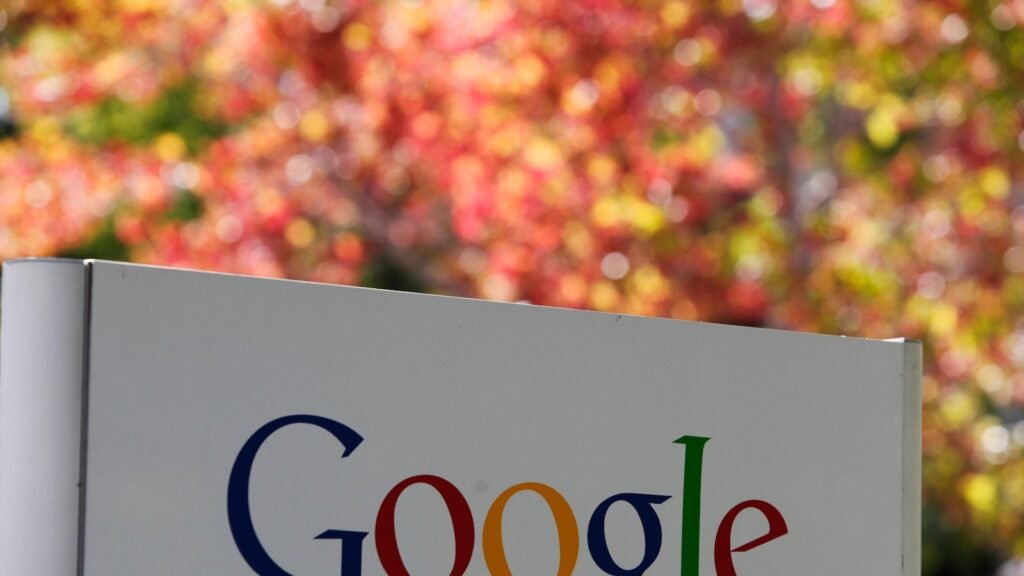ALEXANDRIA, Va. — A month after a judge declared Google’s search engine an illegal monopoly, the tech giant faces another antitrust lawsuit that could lead to the breakup of the company, this time over its advertising technology.
The Justice Department and a coalition of states claim that Google has a monopoly on technology that matches online publishers with advertisers. The government said in court documents that Google’s dominance over the software on both the buy and sell sides of transactions allows it to earn as much as 36 cents on every dollar it matches publishers with advertisers.
Google said the government’s allegations were based on a past internet when desktop computers dominated and internet users carefully typed precise World Wide Web addresses into URL fields. Now, advertisers are more likely to turn to social media companies like TikTok or streaming TV services like Peacock to reach audiences.
In recent years, Google Networks, a division of the Mountain View, California-based tech giant that includes services such as AdSense and Google Ad Manager at the heart of this case, has actually seen revenue decline, from $31.7 billion in 2021 to $31.3 billion in 2023, according to Google’s annual report.
The trial over the alleged ad tech monopoly opened on Monday in Alexandria, Va. Initially, the case was to go to a jury, but Google took the tactic of forcing a trial by writing the federal government a check for more than $2 million to dismiss the only lawsuit filed by the government that required a jury trial.
The case will now be decided by U.S. District Judge Leonie Brinkema, an appointee of former President Bill Clinton who is known for her work on high-profile terrorism cases, including that of 9/11 defendant Zacarias Moussaoui. But Brinkema also has experience in highly technical civil trials, working for a court that hears a large number of patent infringement cases.
The Virginia case comes on the heels of a major legal defeat for Google over its search engine, which generates the vast majority of its $307 billion in annual revenue. A judge in the District of Columbia declared the search engine a monopoly in part because it pays tens of billions of dollars a year to companies like Apple to lock it in as the default search engine that appears when consumers buy iPhones and other electronics.
The judge in that case has not yet imposed any remedies. The government has not yet outlined proposed sanctions, but there will likely be close scrutiny over whether Google should be allowed to continue striking exclusive deals to ensure its search engine becomes the default choice for consumers.
Peter Cohan, a professor of management practice at Babson College, said the Virginia case could hurt Google more because the obvious remedy would be to require it to sell off parts of its advertising technology business that generates billions of dollars in revenue each year.
“Asset divestiture is certainly a possible solution to the second case,” Cohen said. “The impact could be more significant than it initially appears.”
Government witnesses at the Virginia trial are expected to include executives from newspaper publishers such as The New York Times Co. and Gannett, as well as executives from online news sites that the government argues have been particularly harmed by Google’s conduct.
“Google has collected massive fees at the expense of website publishers who make the open internet vibrant and valuable,” government lawyers wrote in court papers. “As publishers receive less revenue from the sale of their advertising inventory, they are forced to place more ads on their sites, put more content behind costly paywalls, or simply cease business.”
Google denies that its fees are too high compared with competitors. The company also claims that the integration of its technology on buyers, sellers and middlemen ensures fast loading of ads and web pages and enhanced security. The company also said that customers can choose to work with external ad exchanges.
Google said the government’s lawsuit inappropriately focuses on display and banner ads on web pages accessed through desktop computers and fails to take into account the migration of consumers to mobile apps and the proliferation of advertising on social media sites over the past 15 years.
Google’s lawyers wrote in a pretrial filing that the government’s lawsuit “focuses on a limited set of ads seen on a small number of websites several years ago when users’ attention shifted elsewhere. The last time users spent more time on ‘open web’ sites than on social media, videos or apps was in 2012.”
The trial is expected to last several weeks and will take place in a court that adheres to strict traditional practices, including a ban on technology in the courtroom. Cell phones are banned in the court, which has annoyed the tech journalist corps that was accustomed to receiving real-time updates on the proceedings via Twitter during the D.C. trial.
Even lawyers, and there are plenty of them on both sides, have limited technology. At a pretrial hearing on Wednesday, Google’s lawyers asked for permission for both sides to use more than two computers in the courtroom during the trial. Brinkema rejected the request.
“This is an old-fashioned court,” she said.
